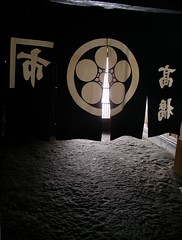HBR Ideacast had a fascinating little gem in a recent episode – a twist on Malcolm Gladwell’s connectors (from the Tipping Point). Their version – that unless you have the amplifying power of a network, like Oprah, an idea may not necessarily take off like wildfire unless conditions are ripe for it.
The analogy given was a spark in a forest. A spark is much more likely to start a forest fire if conditions are right – drought, high winds, etc. – than under normal or wet conditions. Furthermore, you don’t have to be anyone special to be the one that starts the spark as long as conditions are right for a fire.
If you’re in a forest that is unfavorable for fire, then you need to have more than a spark – you need to have a blowtorch and a few gallons of gasoline. The Ideacast folks made a passing reference to Oprah and her media empire, but what if your media empire is your network, your personal reach? If you have a large, large network that is automatically more favorable to the spread of your idea (because they know you) then the spark you create is more likely to catch and spread than a random network or no network at all.
Networks are power amplifiers. Your voice can be amplified through your network, made stronger, louder, more clear with the help of others. This is why collaboration is so vital, and why things like bickering and petty politics inside the new media community are so absurd. Our voices together are far louder than any one of us apart. Even the rockstars in our community have comparatively little reach compared to someone like Oprah, who has a much larger audience and farther reach. Together, we could probably match her, but even in little cliques, we’re far from that kind of power.
This is also why the philosophy of “give to get” works so well in social media. You have favorable conditions in the form of your network, but in order to accelerate a campaign, the fire itself has to be intensely hot so that it catches quickly and spreads quickly. This, to me, comes in the form of value. If what you have to share with your network is of value, it will spread faster than something that is purely self-serving.
As a marketer, can you make your offering so value-rich that everyone who touches it gains value? This makes me think of network effects and fax machines again. What can you create of value that not only is something that is worth sharing, but as it is shared, it increases the value of what you have? The 2000 blogger project comes to mind – every time you pass it on, you provide value to someone else, but you also get great value as it’s passed on, because it generates continuing inbound links and Technorati buzz.
This is where I think projects like LinkedIn LION networks really shine – as you build your network, you add value to others’ networks, and vice versa.
Today’s puzzle: how the heck to do this with student loan consolidation. What can we do here that can make the value of an individual consolidation more valuable?
 {border=”0″ align=”right”}
{border=”0″ align=”right”}

